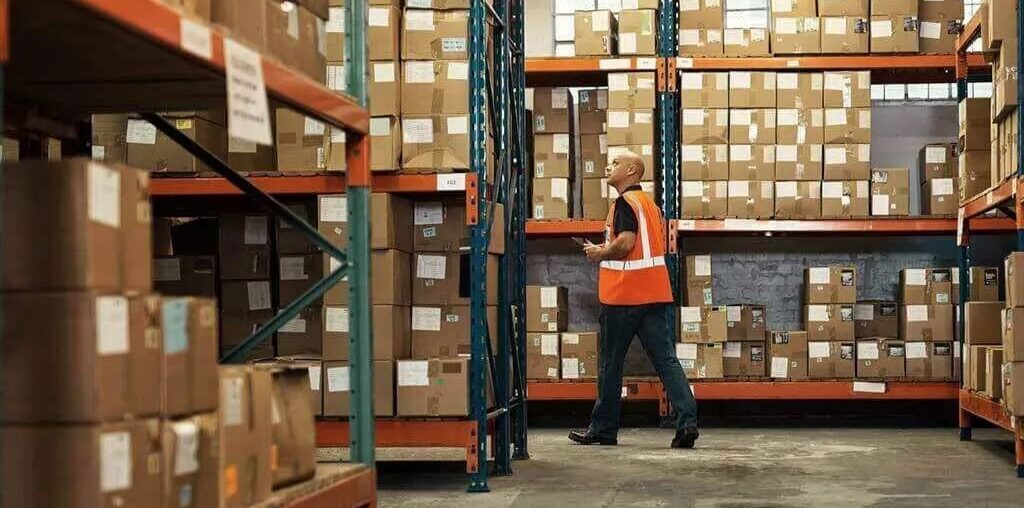In the world of commerce, wholesale distributors play a crucial role in connecting manufacturers with retailers, businesses, and sometimes even end consumers. These Distributor operate as intermediaries, ensuring products are efficiently transported, stored, and made available for retailers or other entities. For businesses that depend on sourcing goods from a variety of manufacturers, wholesale distributors simplify the supply process, improve reliability, and help reduce costs by managing the logistics and inventory burdens. This article dives deep into the fundamentals of wholesale distribution, types of distributors, how to select a wholesale partner, and the benefits they offer.
1. What is a Wholesale Distributor?
A wholesale distributor buys products in large quantities from manufacturers or producers and then sells them to other businesses, usually at a higher price. Unlike retail, which targets end consumers, wholesale distribution primarily caters to other businesses, including retailers, commercial buyers, and other wholesale distributors. Wholesale distributors are essential for the supply chain, bridging the gap between production and retail by managing storage, logistics, and delivery.
Key Features of Wholesale Distributors:
- Purchase products in bulk directly from manufacturers.
- Offer discounted rates on products to businesses that buy in large quantities.
- Maintain stock and inventory, ensuring constant supply to retailers.
- Facilitate the transport and logistics of goods from manufacturers to various points of sale.
2. Types of Wholesale Distributors
Wholesale distributors serve different industries and operate in varied capacities. Here are some common types:
a. General Wholesale Distributors
These distributors provide a wide variety of products across various sectors and are not industry-specific. They often serve smaller retail businesses or those needing assorted products from different manufacturers.
b. Specialty Wholesale Distributors
Focused on a particular niche, specialty distributors supply products for specific industries, such as automotive, electronics, healthcare, and fashion. This targeted approach allows them to offer a deeper selection of products and expertise within a specific category.
c. Drop Shippers
Drop shippers work as intermediaries between the retailer and manufacturer but do not store the products themselves. Instead, they manage orders and coordinate direct shipping from the manufacturer to the end consumer. This model is particularly popular in e-commerce, as it minimizes inventory costs.
d. Full-Service Wholesalers
These distributors provide an array of services beyond product supply, including inventory management, marketing support, financing options, and sometimes even product training. Full-service wholesalers are highly beneficial for retailers looking for extensive support in managing their supply chain.
e. Cash-and-Carry Distributors
These are smaller wholesale operations that allow businesses to buy products on the spot, typically paying cash and taking immediate delivery. This model is common for smaller businesses that may not have large storage capacity and prefer buying products in smaller batches.
3. The Role of Wholesale Distributors in the Supply Chain
Wholesale Distributors are essential to a streamlined and efficient supply chain. Their roles include:
- Inventory Management: Wholesalers ensure that retailers have access to a steady supply of goods without needing to store large inventories.
- Risk Mitigation: By purchasing in bulk, distributors take on the risk of unsold stock, reducing the financial burden for retailers.
- Logistics and Transportation: Wholesale distributors manage transportation from manufacturers to retail stores, often providing warehousing services to facilitate seamless distribution.
- Supply Chain Stability: Wholesale distributors help create stable supply chains by building long-term relationships with manufacturers and retailers, ensuring that products flow smoothly from producer to consumer.
4. Advantages of Using a Wholesale Distributor
For businesses, working with Wholesale Distributors offers several benefits, including cost savings, efficiency, and reliability.
a. Cost Savings
Since wholesale distributors buy in bulk, they obtain products at significantly reduced rates and pass some of these savings on to their clients. This model allows retailers to secure goods at a lower price, increasing their potential profit margins.
b. Time Efficiency
Wholesalers handle all aspects of the procurement process, from buying and storing products to managing inventory and logistics. By outsourcing these functions, retailers save time and can focus more on growing their business and serving customers.
c. Scalability
Wholesale distributors support businesses in scaling up without the constraints of inventory storage or logistics management. They make it easier for retailers to increase orders as demand rises without worrying about storage limitations.
d. Product Variety
Many wholesale distributors offer an extensive range of products sourced from various manufacturers, giving businesses the flexibility to choose from diverse brands and styles that suit their market needs.
e. Risk Reduction
With a distributor as an intermediary, the risk of supply shortages, shipping issues, and logistical delays is minimized. Distributors invest in infrastructure, technology, and inventory management systems that ensure retailers receive a reliable product supply.
5. How to Choose the Right Wholesale Distributor
Choosing a reliable and suitable Gt Distributors is critical to a business’s success. Here are factors to consider when selecting a wholesale partner:
a. Industry Knowledge and Reputation
Research potential distributors’ reputations and levels of experience in your industry. A distributor with a solid track record and industry knowledge will likely offer valuable insights, better pricing, and access to premium products.
b. Pricing and Terms
Ensure the pricing model aligns with your profit goals. Ask about payment terms, bulk pricing discounts, and whether they offer credit terms or require upfront payments.
c. Product Range and Availability
A distributor should carry the products you need with consistent availability. Consider whether the distributor’s catalog covers a broad enough range to meet your product needs or is too limited.
d. Reliability and Responsiveness
Reliability is essential in wholesale distribution. Confirm the distributor’s track record for on-time deliveries and its customer service responsiveness. A responsive and reliable distributor can help resolve issues quickly and minimize disruptions to your supply chain.
e. Additional Services
Consider whether the distributor provides value-added services like inventory management, custom packaging, marketing support, or even drop shipping. These services can reduce costs and improve supply chain efficiency.
6. Challenges of Working with Wholesale Distributors
While wholesale distributors offer a range of benefits, they also present unique challenges that businesses should prepare for.
a. Higher Upfront Costs
Purchasing from wholesale distributors often requires buying in bulk, which can necessitate a significant upfront investment. Businesses with tight cash flow may struggle with the initial financial burden.
b. Inventory Risk
Depending on the distributor’s policy, a business may need to commit to a certain amount of stock, which poses a risk if demand for the product decreases. Excess inventory could lead to wasted resources if unsold.
c. Potential Quality Control Issues
Since distributors source products from multiple manufacturers, ensuring consistent product quality across various brands can be challenging. Retailers need to work closely with distributors to establish quality control measures.
d. Dependency on a Single Supplier
Over-reliance on one wholesale distributor can create vulnerabilities, particularly if the distributor experiences supply chain disruptions, financial issues, or logistical challenges. Diversifying suppliers is often a good strategy to mitigate these risks.
7. Trends Shaping Wholesale Distribution
Several emerging trends are influencing the wholesale distribution industry:
a. Digital Transformation and E-commerce
Wholesale distributors are increasingly adopting digital tools to streamline order management, enhance customer communication, and support online purchases. Many distributors are building e-commerce platforms that allow businesses to place orders online, simplifying the ordering process.
b. Data-Driven Decisions
Distributors are leveraging data analytics to improve inventory management, forecast demand, and enhance customer service. By analyzing purchasing patterns and trends, distributors can make informed decisions that benefit both retailers and manufacturers.
c. Sustainability and Green Practices
Wholesale distributors are under pressure to adopt environmentally friendly practices. This includes optimizing delivery routes, reducing packaging waste, and investing in energy-efficient warehouses to meet the growing demand for sustainable practices.
d. Supply Chain Resilience
With recent disruptions in global supply chains, distributors are prioritizing resilience by diversifying their sourcing, investing in technology, and building stronger relationships with both manufacturers and retailers to ensure continuous supply.
Conclusion
Wholesale distributors are invaluable to the global economy, serving as the bridge that connects manufacturers to retailers. They streamline the supply chain, reduce logistics burdens, and provide businesses with access to products at competitive prices. For companies considering working with wholesale distributors, understanding the nuances of wholesale partnerships, the types of distributors, and how to select a reliable distributor is essential. By carefully evaluating Scp Distributors Llc and building solid relationships, businesses can leverage these partnerships to scale, minimize risks, and better serve their customers. In today’s fast-paced market, wholesale distributors will continue to play a critical role, adapting to new trends and technologies that enhance the efficiency and sustainability of the supply chain.


